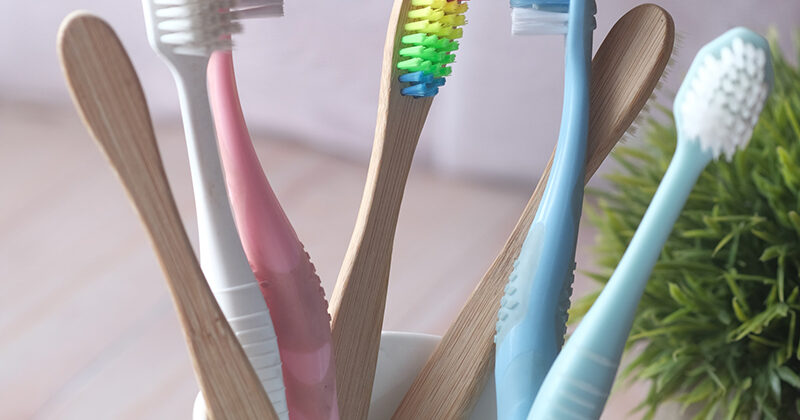![]()
![]()
![]()
![]() You brush when you wake up and before you go to bed at night. You floss daily, and you schedule preventive dentistry visits twice a year. But you still may not be doing enough to fully protect your oral health. In fact, if you’re brushing or flossing incorrectly, you could actually be damaging your teeth. Plus, other harmful habits could counteract the effects of your good behaviors! Read on to learn some surprising tips for protecting your smile.
You brush when you wake up and before you go to bed at night. You floss daily, and you schedule preventive dentistry visits twice a year. But you still may not be doing enough to fully protect your oral health. In fact, if you’re brushing or flossing incorrectly, you could actually be damaging your teeth. Plus, other harmful habits could counteract the effects of your good behaviors! Read on to learn some surprising tips for protecting your smile.
In addition to providing great preventive care in the office, Dr. Julie Glud offers thorough patient education. When you visit Dental Care of Lombard, she can give you specific guidelines to address your unique needs and oral health challenges.
Contact our office today to schedule your preventive consultation.
1. There Is a Proper Brushing Technique.
Aggressive tooth brushing techniques can erode your dental enamel. In turn, this can lead to dental sensitivity and a much greater risk for tooth decay. Furthermore, if you bought a hard-bristled brush, thinking it would more effectively remove plaque, you should switch it out for a soft one. Hard toothbrushes can also wear down enamel.
To properly clean your teeth, the American Dental Association recommends that you hold the brush at a 45-degree angle. Use gentle, short, horizontal strokes about the width of your tooth. And be sure to brush all surfaces of your teeth, including the backs and chewing surfaces.
2. Flossing the Wrong Way Can Damage Your Gums.
It might be tempting to floss your teeth with a satisfying “snap!” But that popping noise indicates that you’re not flossing correctly. This method will irritate your gums and possibly cause bleeding. And it won’t remove that much plaque and tartar anyway!
For correct cleaning, take about 18 inches of floss. Use a clean portion to floss between each tooth. Move the floss with a gliding motion. When you reach the gums, follow the gum-line with a C-shaped curve to clean between your tooth and the soft tissues. Use an up-and-down rubbing motion to gently scrape the sides of your teeth.
3. Chewing Gum Can Promote Better Dental Health.
Chewing sugar free gum after a meal stimulates saliva production. In turn, saliva helps to counteract acid and remineralize damaged dental enamel. Thus, chewing gum after a meal, when you are not in a position to brush your teeth, can help prevent cavities.
Of course, chewing gum with sugar will not have this effect and can increase your risk for tooth decay. Furthermore, if you wear dentures or braces, chewing gum is not recommended. It can also worsen jaw pain in patients with TMJ Disorder.
4. Water is Great, But Be Careful with Ice.
Drinking water with and after meals is an essential part of preventive dentistry. Like saliva, water can help to wash away bits of food and darkly pigmented molecules, which can cause discoloration.
Ice is not inherently harmful (unless you suffer from temperature-related sensitivity). But chewing on ice can cause cracks, chips, and damage to the enamel.
Learn More or Schedule a Preventive Dentistry Appointment
To find out how to properly care for your teeth or to book an exam and cleaning, contact our Lombard, IL, office today.
You can request an appointment online or call us at 630-629-5700.

